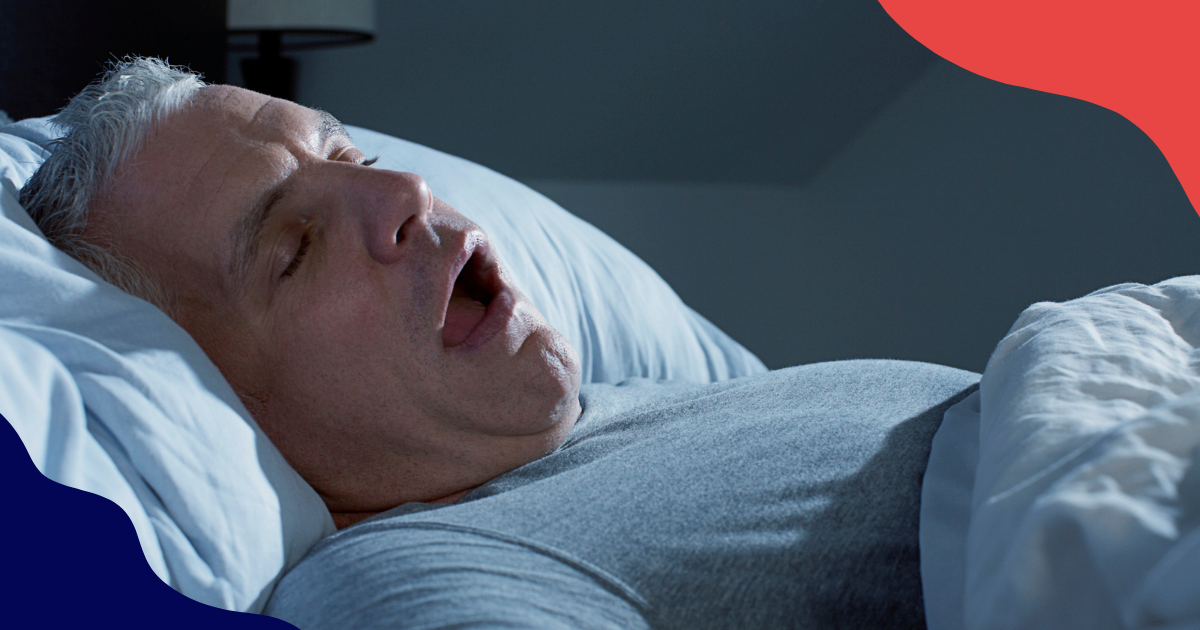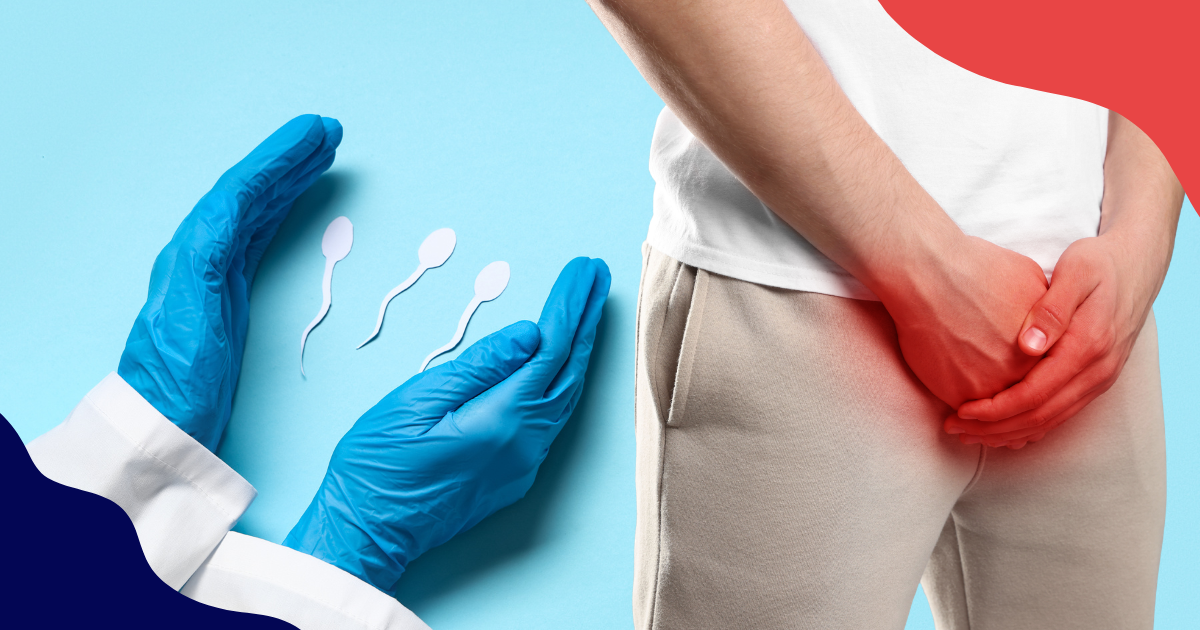Do you have problems getting an erection? Are you having trouble sustaining an erection? Do you have reduced sexual desire? If you answered “YES” in one of these questions, you might have erectile dysfunction (ED). If you are unsure about your condition, the best thing to do is visit a doctor.
But did you know that you can also perform an erectile dysfunction test at home? A self-assessment allows you to know whether you have ED or not, so seeking treatment from your trusted doctor or clinic would be easier.
It’s important to note that self-testing is different from self-medication. Self-medication is not advisable due to its risky nature. There’s no one-size-fits-all medication for erectile dysfunction, so it’s always best to seek treatment from a licensed clinic that specialises in male sexual dysfunctions. Self-testing, on the other hand, comes with benefits because it empowers you to take charge of your health. By understanding your situation better, you can communicate more effectively with your healthcare provider.
This article tells you all you need to know about self-assessments and what to do next.
Why is self-assessment important?
As with any medical condition, early detection is important in cases of erectile dysfunction. Here are some of the most pressing reasons why you want to detect erectile dysfunction as early as possible:
- More treatment options – Detecting erectile dysfunction earlier means more treatment options to choose from. It can be through simple lifestyle changes (diet and exercise), oral medications, or therapy. When ED is not detected early, the condition is harder to treat, and some options may not be appropriate anymore because of the severity of the condition. If not detected early due to prolonged neglect, more invasive treatments will be prioritised.
- It can be cheaper – Getting an early start in treating erectile dysfunction can be cheaper. Most medical conditions are easier and cheaper to treat when they are not yet in an advanced stage.
- Improves long-term health – Detecting erectile dysfunction earlier can improve your long-term health. This is because erectile dysfunction is often caused by an underlying condition. For example, your erectile dysfunction might be because of a heart disease, prostate condition, or hormone imbalance that you are not aware of. Identifying these underlying conditions can potentially save your life or improve its quality.
- Reduces complications – Detecting and treating erectile dysfunction early can help avoid possible complications. For example, ED can put a strain on your relationship with your partner and treating it sooner can help save your relationship.
How do you perform self-assessment at home?
The goal of a test for erectile dysfunction at home is to determine if the cause of your erectile dysfunction is physical or psychological.
A self-assessment for erectile dysfunction focuses on whether you experience erections during the night. It is also called the Nocturnal Penile Tumescence (NPT) stamp test.
The Nocturnal Penile Tumescence (NPT) stamp test is a clinical assessment used to evaluate erectile function, particularly to differentiate between psychological and physiological causes of erectile dysfunction (ED). The test was introduced by John M. Barry M.D. and his colleagues in the 1980s to understand the mechanisms behind erections.
Why is this test done during the night? Because men with normal physiological erection function can get erections while they are sleeping. According to an article published by the San Francisco Medical Center of the University of California, healthy pubescent males experience between three to five spontaneous erections while sleeping. This means that they have uncontrolled erections which rule out physical causes of ED.
So, how do you perform a self-assessment at home?
Preparation
The test is called a stamp test because you must use several postage stamps to conduct it. Four to six postage stamps should be enough. It doesn’t matter what the denomination of your stamps is. What is important is that the stamps have dry glue on their backs. If you don’t have stamps, you can use a strip of paper as an alternative. The strip of paper should be one inch wide. It should be long enough to go around your penis with a bit of an overlap.
Avoid consuming alcohol before the test. Alcoholic drinks are diuretics. This means they help you move extra fluids and salt out of your body. If you drink alcohol during the night of your test, you might end up having to go to the bathroom several times throughout the night to take a leak.
If you are taking pharmaceutical sleep aids, don’t take them at least two nights before the test because sleep aids can prevent erections. It is also important that you avoid drinking caffeinated drinks before taking the test. The success of the free erectile dysfunction test hinges on a good night’s sleep and caffeinated drinks might cause you difficulties.
Performing the test
Performing the nocturnal penile tumescence stamp test is easy. Here are the steps you need to take:
- Have your stamps ready. Make sure you have enough stamps to circle the shaft of your penis.
- Moisten the stamps and wrap them around your penis. Be sure that the stamps will overlap so they’ll stay in place throughout the night. The roll of stamps should be snug enough that it will break if you get an erection while sleeping.
- Wear your briefs or boxers on the night of the test.
- It will be best if you sleep on your back to avoid disturbing the stamps.
- In the morning, check if the roll of stamps is intact.
- Repeat the erectile dysfunction home test three nights in a row.
Assessing the results
If the roll of stamps broke during the night, it might indicate that you had an erection while sleeping. This might help rule out physical causes of erectile dysfunction. If the roll of stamps is intact when you wake up, it might indicate that your ED is psychological.
However, the results of this free erectile dysfunction test are not always accurate. For example, if you are a restless sleeper, there is a chance that the roll of stamps broke because of your movements while you were sleeping. Tossing and turning during sleep will likely break the roll of stamps. It is also important to remember that waking up with an intact roll of stamps is not a clear indication that you have ED.
Sexual Health Inventory for Men (SHIM)
Although the nocturnal penile tumescence stamp test is the most popular erectile dysfunction test you can perform at home, there are other self-test options you can explore. One such method is called the Sexual Health Inventory for Men (SHIM). This is probably the most accurate method of testing for erectile dysfunction. It is a type of questionnaire to help you check whether or not you have ED. Although a doctor can administer this test for you, you can answer this questionnaire in the comfort of your home. Here is an example of a questionnaire you can use from the Prostate Cancer Foundation (PCF).
What else can I do?
If you are occasionally experiencing erectile dysfunction, keeping a journal might help narrow down the cause of your ED. Take note of the instances when you failed to get an erection. You can also include other details such as if you consumed alcohol before sexual intercourse. If possible, note how you felt before experiencing ED. Were you stressed, anxious, or sad? Were there other things weighing on your mind during that day? Keeping a journal will help you detect a pattern to pinpoint commonalities when you experience ED.
Why consult a doctor?
Although self-assessments are available, you still need to consult a doctor. Remember that a self-test is not a hundred percent accurate. These home tests can help you determine if you have ED but they won’t tell you what is causing your ED. These tests are just starting points for a more comprehensive discussion with your doctor.
Before going to your doctor, prepare yourself. Be honest during discussions. Your doctor will ask you questions you might find embarrassing. Remind yourself that the only way for your doctor to come up with an accurate diagnosis is if you answer questions honestly. You will have to give details about your sex life and instances when you failed to achieve an erection. It is also important to provide your doctor with details about your lifestyle that might contribute to your erectile dysfunction.
Your doctor can perform a physical exam during your visit. Your doctor will examine your penis and testicles to see if there are physical signs of what might be causing your ED. The doctor might also check your nerves since damage in your nerves might lower your libido and cause ED.
An erectile dysfunction test by a urologist will be more accurate because it will tell you if you have ED and what might be causing it. These tests might involve taking blood and urine samples for testing. A blood test will show if you have signs of heart disease, diabetes, or low testosterone. On the other hand, a urine test can help determine if you have diabetes. These are medical conditions that can cause ED.
A doctor can also order an ultrasound to help detect ED. During this test, a lab technician will hold a transducer over the blood vessels that supply blood to your penis. Remember that a healthy flow of blood is crucial to attain and maintain an erection. The results of an ultrasound can help your doctor determine if you have blood flow problems resulting in ED.
Your doctor can also administer a psychological exam. This exam can help screen for depression, anxiety, and other psychological issues that might be causing your erectile dysfunction. This is important because there are instances when an ED is because of a mental health issue.
The convenience of telehealth clinics for erectile dysfunction
Erectile dysfunction is a sensitive issue for some and is usually surrounded by stigma. Some men feel embarrassment just talking about it. Thankfully, telehealth clinics have emerged as a groundbreaking solution because they provide a convenient and discreet avenue for men seeking help for ED.
One of the main benefits of telehealth clinics is privacy. Telehealth clinics like Men’s Health Clinic (MHC) offers a confidential environment where patients can consult healthcare professionals from the comfort of their own homes. This anonymity can reduce anxiety and encourage more men to seek the care they need without the fear of judgment.
In terms of convenience, MHC eliminates the need for travel, waiting rooms, and in-person appointments. Patients can schedule a consultation at times that suit them—allowing for flexibility in managing their health.
Additionally, telehealth clinics like MHC often provide a more streamlined approach to treatment. After an initial consultation, we will schedule an appointment with a doctor. After this, MHC will assess the ideal treatment plan for you. The medications will be delivered discreetly to your door.
If you want a more efficient way to address ED than traditional clinic visits, contact Men’s Health Clinic (MHC). MHC is a trusted telehealth clinic established in 2012 that provides a discreet, convenient, and efficient means of accessing quality care. We have helped more than 150,000 men manage their sexual dysfunctions. Compared to self-testing and traditional clinic visits, MHC represents a modern approach that prioritises patient comfort and accessibility.
Conclusion
Many people suffer from erectile dysfunction. It can be caused by physical or psychological factors. If you are unsure if you have ED or just having a bad day in bed, a self-assessment can be helpful. However, an erectile dysfunction test done at home is not a substitute for a professional test.
If you performed a self-test and the result points to ED, consult Men’s Health Clinic (MHC). MHC’s partner doctors can help identify the root cause of your problem and create a treatment plan to help you get back on your feet again. Don’t let ED keep you down. Book a FREE consultation with the MHC today so you can get back the manhood that you thought you had lost!




